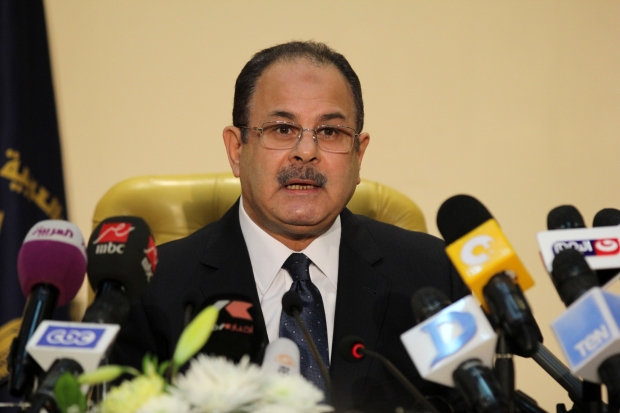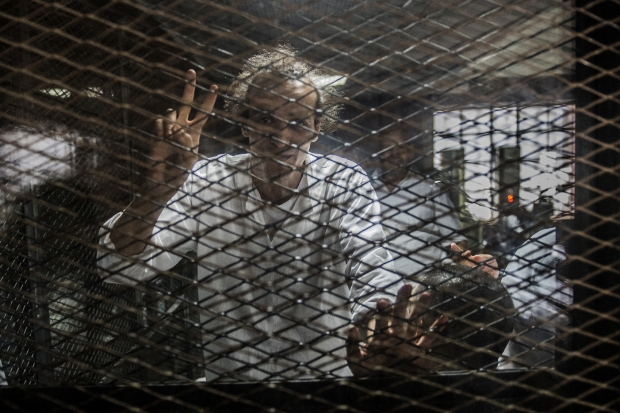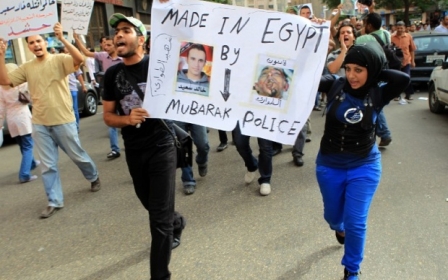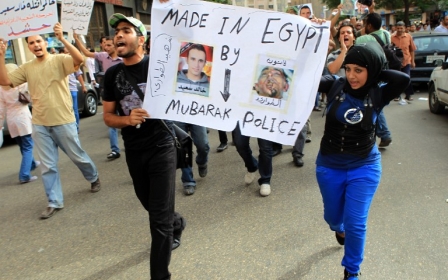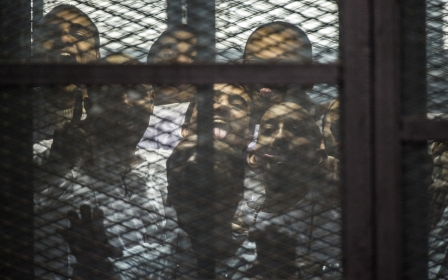Egypt’s Scorpion prison: Inmates dying due to lack of medical care, says HRW
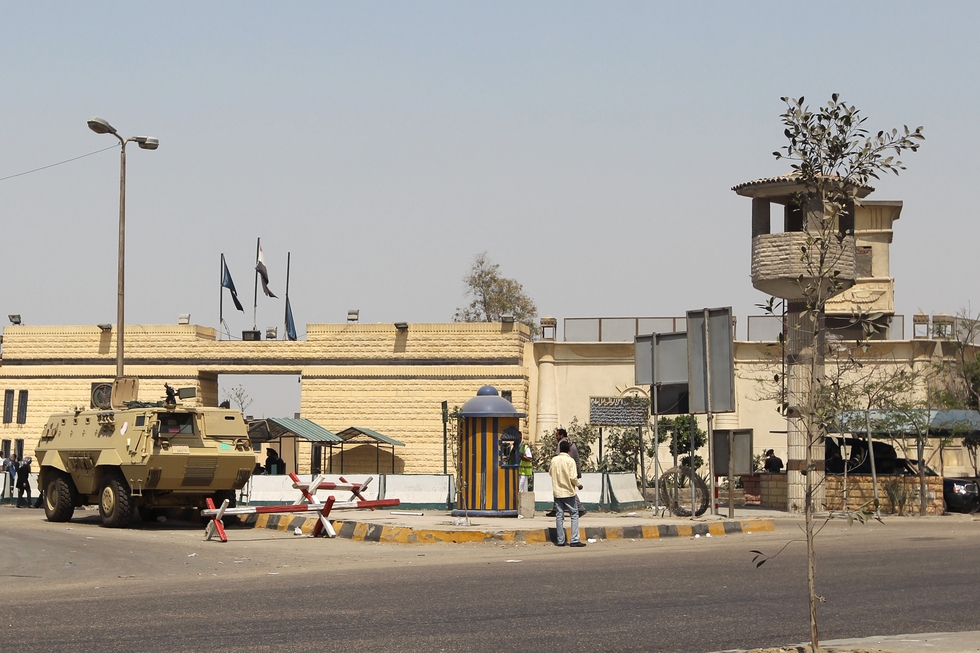
The routine abuse of political prisoners in Egypt’s most notorious jail may have led to the deaths of some inmates, Human Rights Watch has said.
Staff at Cairo’s Tora Maximum Security Prison – known as Scorpion – have severely assaulted inmates, refused to let them see lawyers and families, and kept them locked alone in cramped overcrowded cells, Human Rights Watch said in its latest report. Some prisoners died because they were denied access to essential medical treatment.
Joe Stork, deputy Middle East and North Africa director at Human Rights Watch, said the prison ensured that political opponents are left with “no voice and no hope. Its purpose seems to be little more than a place to throw government critics and forget them".
The report, “'We Are in Tombs’: Abuses in Egypt’s Scorpion prison,” says that the treatment by staff of Egypt’s interior ministry is tantamount to torture in some instances and goes against basic international principles for the treatment of detainees.
Why more people are ending up in prison
The Egyptian authorities have arrested at least 41,000 political opponents, according to independent online statistics group, Wiki Thawra, from when Abdel Fattah al-Sisi came to power in July 2013 till December 2014. Tora currently holds 1,000 prisoners, including Muslim Brotherhood leaders, alleged members of the Islamic State group, and opponents of the Sisi government.
Relatives said that prison conditions notably worsened in March 2015, when Magdy Abd al-Ghaffar became interior minister. For five months, the interior ministry stopped all visits by lawyers and family: in some cases this prevented the delivery of essential food and medicine to the prison, which has no regular medical care nor hospital.
Essam Derbala, a high-ranking member of al-Gama'a al-Islamiyya (the Islamic Group), was refused access to his diabetes medicine, despite a judge and prosecutor ordering that he be allowed to take it, according to his brother and lawyer. Derbala died hours after an August 2015 court hearing, at which he shook and was semi-conscious.
Farid Ismail, a former member of parliament for the Muslim Brotherhood’s Freedom and Justice Party, died in May 2015, after suffering a hepatic coma inside the prison. He suffered from hepatitis C. Friends of Ismail said that when fellow inmates told prison guards about his absence from a prisoner-initiated roll call, they were told that it was “none of their business”. The following day he was found unconscious in his cell and died a week later at an external hospital.
'Egypt’s detention system is overflowing with critics of the government'
“Egypt’s detention system is overflowing with critics of the government,” Stork said. “Ending the abuses at Scorpion is a small step toward improving dire conditions across the country.”
The blanket ban on visits at Tora has now been removed, although visitors are still sometimes stopped from seeing prisoners. There is no privacy for lawyers when they see inmates.
The prison, which was built in 1993, is designed to hold “preventive detainees in state security cases”. But former warden Major General Ibrahim Abd al-Ghaffar told local media in 2012: “It was designed so that those who go in don’t come out again unless dead."
Prisoners 'sexually assaulted with pipes and hoses'
Aside from the HRW report, a long litany of reports about the conditions in Scorpion Prison has emerged during the past few years.
In August, a group of human rights organisations declared that at least 264 Egyptian political prisoners had died in detention since July 2013, many of whom were in the prison.
Meanwhile in December 2015, the families of prisoners and activists launched a campaign after prisoners complained they had no access to suitable clothes to keep themselves warm.
And in December 2014, photojournalist Mahmoud Abou Zeid described how he was being held for 22 hours a day in a three- by four-metre cell metre cell that he shared with 12 other men. He added that his family was forced to wait seven to eight hours each time they arrived for their weekly visit, facing “insults and degrading treatment”.
HRW: What Egypt needs to do
Human Rights Watch has now called for the Egyptian interior ministry to end arbitrary bans on visits; ensure access to medical care, including doctors; and allow the minimum necessities to ensure hygiene and comfort.
It was designed so that those who go in don’t come out again unless dead
- Major General Ibrahim Abd al-Ghaffar, former warden
Other measures the group has demanded include allowing visits by international observers, the introduction of a complaints system and the investigation of deaths in custody.
Human Rights Watch interviewed 20 relatives of inmates held in Scorpion, two lawyers, and one former prisoner for the report, as well as reviewing medical files and photos of sick and deceased prisoners.
This article is available in French on Middle East Eye French edition.
New MEE newsletter: Jerusalem Dispatch
Sign up to get the latest insights and analysis on Israel-Palestine, alongside Turkey Unpacked and other MEE newsletters
Middle East Eye delivers independent and unrivalled coverage and analysis of the Middle East, North Africa and beyond. To learn more about republishing this content and the associated fees, please fill out this form. More about MEE can be found here.


